Swiss student groups call for early readmission to Erasmus+
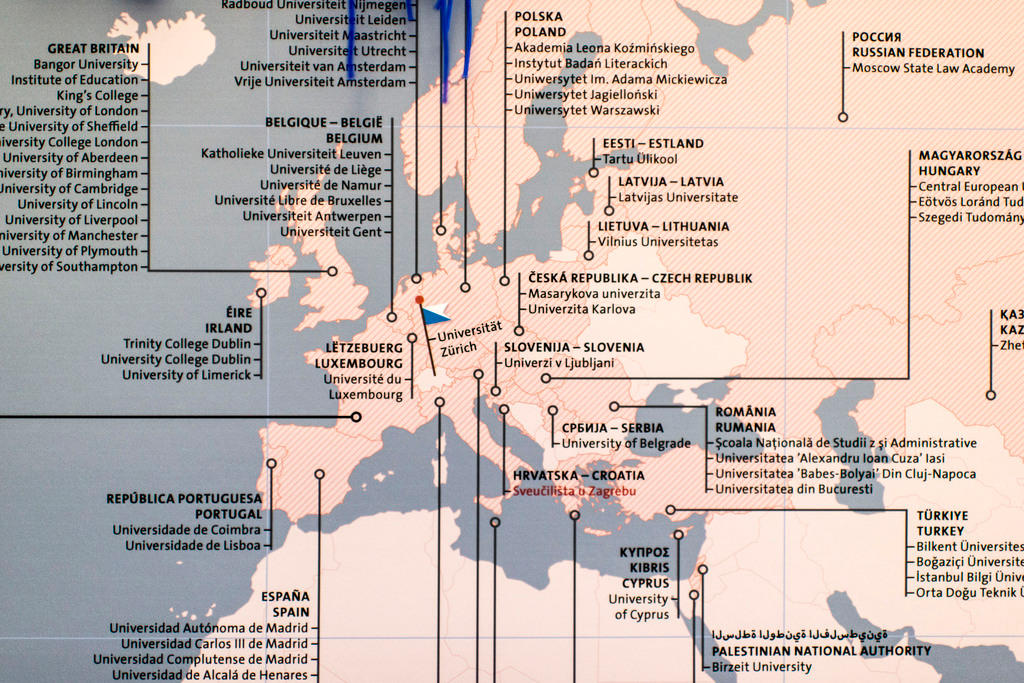
Campaigners have handed in a petition calling for Switzerland’s full reintegration into Erasmus+, the European Union’s student exchange scheme, when an interim solution expires at the end of this year.
Switzerland should be reintegrated into the Erasmus+ student exchange programme from the beginning of 2018, and not in 2021 as the government wants, says the Swiss Student Union. On Monday, the Union and 25 other groups submitted a petitionExternal link bearing 10,000 signatures to the Federal Chancellery.
The petitioners are demanding that the Swiss government and parliament immediately restart negotiations with the EU to rejoin Erasmus+, with the aim of full membership from next January, and to allocate sufficient financial resources to the scheme.
Interim solution
Meanwhile, the Swiss cabinet wants to extend an interim solution for international student exchanges by three years when it expires at the end of 2017. The interim solution for ErasmusExternal link became necessary after Brussels suspended negotiations with Switzerland in response to the approval by Swiss voters of a 2014 proposal to re-introduce immigration quotas for EU citizens.
However, the organisations behind the petition complain that students lose out academically by not being a full member of Erasmus+. They say the ad hoc solution, known as the “Swiss European Mobility Programme” (SEMP), offers students less choice. Some foreign universities or academic institutions limit access to Swiss students – or flat-out reject them – for not being in Erasmus+. The University of Cambridge, regularly rated the top university in Europe, does not recognise the Swiss interim solution and has not accepted Swiss students since 2014.

More
Erasmus strives to widen Swiss horizons
As well as reducing Swiss students’ mobility and having an impact on their professional development, the interim solution is an administrative burden for Swiss universities and a hindrance for Swiss institutions in terms of international cooperation, the petitioners argue.
The left-wing Social Democratic Party has described permanent exclusion from Erasmus+ as “unacceptable” and accuses the cabinet of lacking political will and of using cost as an excuse.
The government has asked parliament for CHF114.5 million ($115 million) to cover the 2018-2020 period of the ad hoc exchange scheme. It believes it is unrealistic to rejoin Eramus+ in 2018. Under a common agreement, the European Commission and Switzerland have not relaunched negotiations to rejoin the scheme, despite Switzerland ratifying the free movement of people accord with Croatia, which was a condition for Switzerland’s renewed access to the EU’s Horizon 2020 research funds and to the Erasmus student exchange programme.
On Monday, the Senate Education Committee announced that it backed the government’s interim scheme, saying Switzerland should fully integrate Erasmus+ from 2021.
EU negotiations
Switzerland was frozen out of both following the February 2014 immigration vote, and given “third country” status with fewer privileges. It re-gained partial access to Horizon 2020 at the beginning of this year after having ratified the free movement of people accord with Croatia.
The difference between Horizon 2020 and Erasmus+ is partly due to timing, but also because Brussels asked the Swiss for a bigger financial contribution to the student exchange scheme than parliament had granted.
When Erasmus was launched in 1987, some 3,000 students from 11 countries took part. Five years later, Switzerland participated in Erasmus for the first time, with 350 students. In total, around 30,000 Swiss students have lived abroad under Erasmus with all the academic, career and personal development benefits entailed.
Last week it was announced that Switzerland had re-assumed full participation in two EU-funded innovation programmes – Eurostars-2 and Active and Assisted Living (AAL) programmes – which had been put on ice following the 2014 Swiss immigration vote.

In compliance with the JTI standards
More: SWI swissinfo.ch certified by the Journalism Trust Initiative
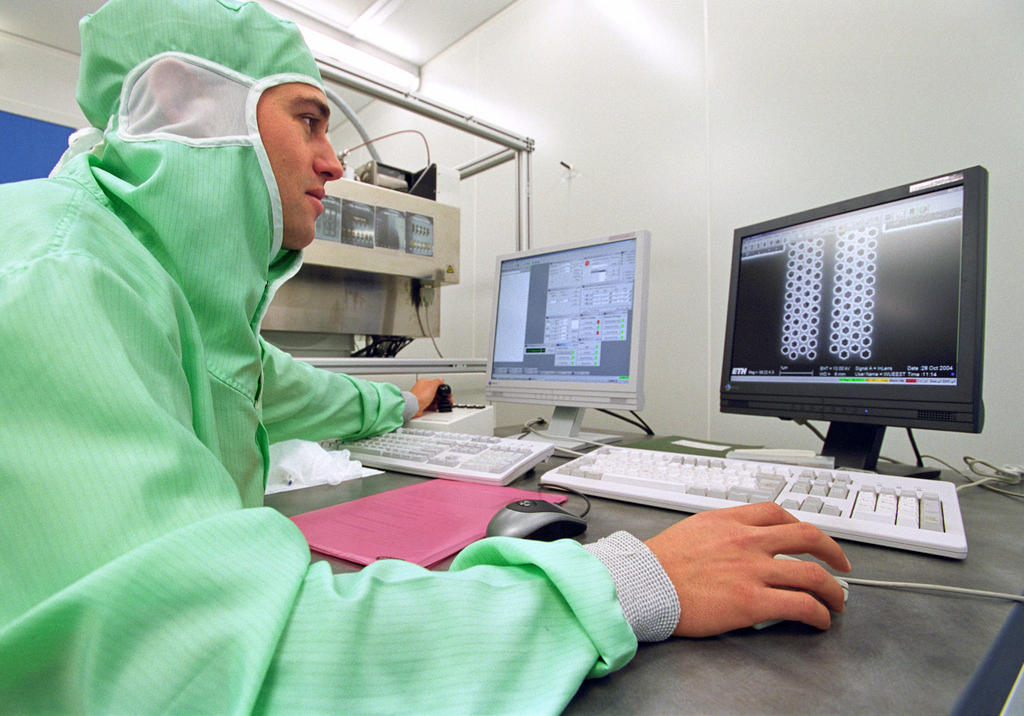
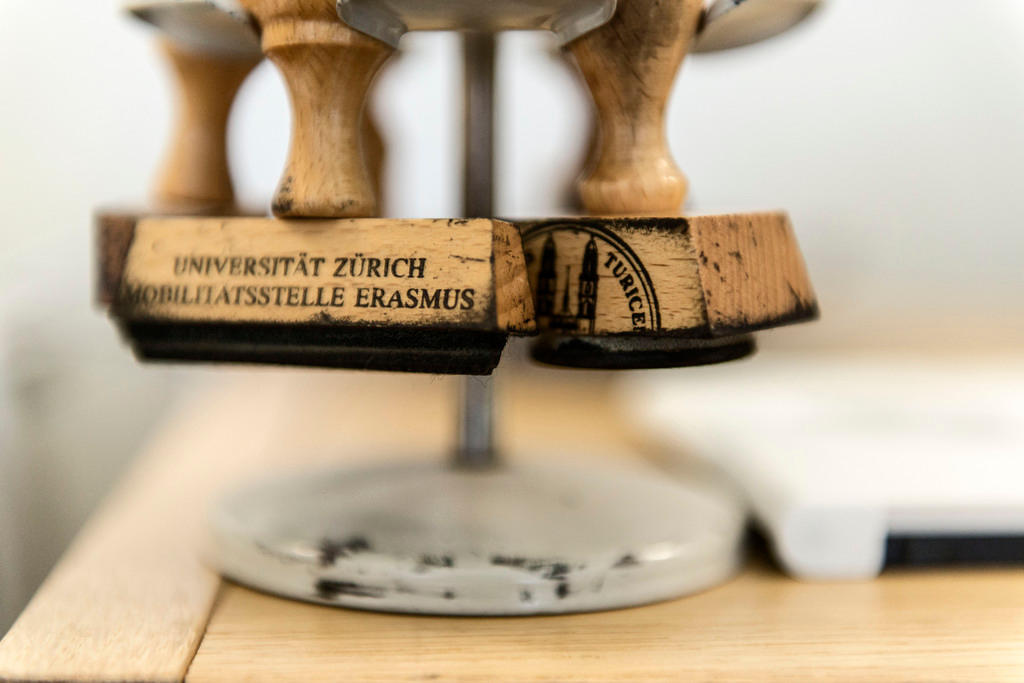

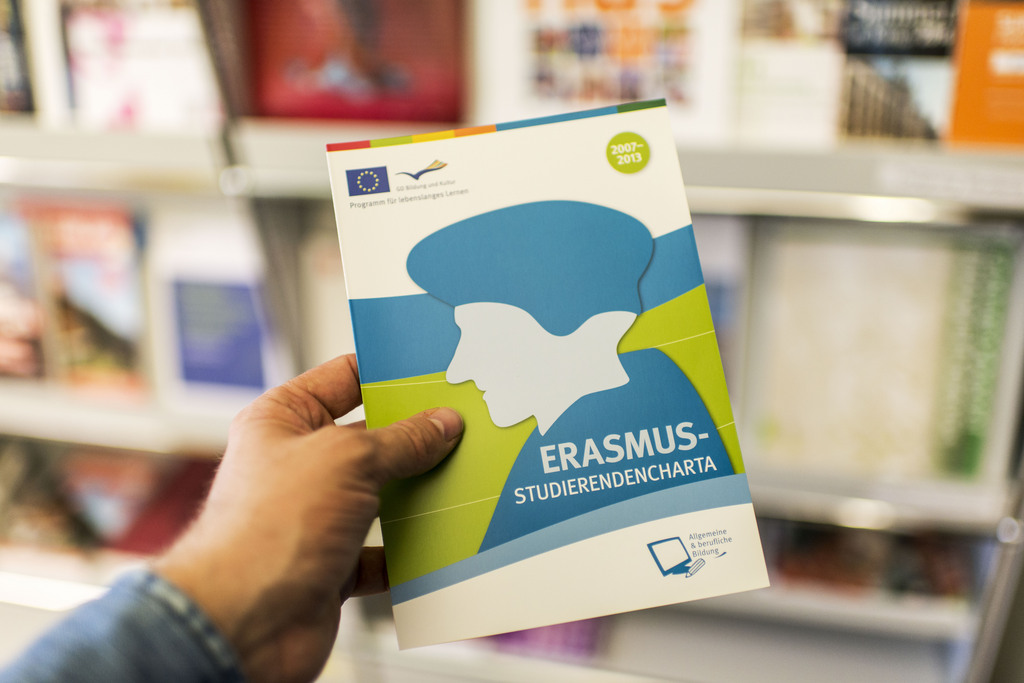
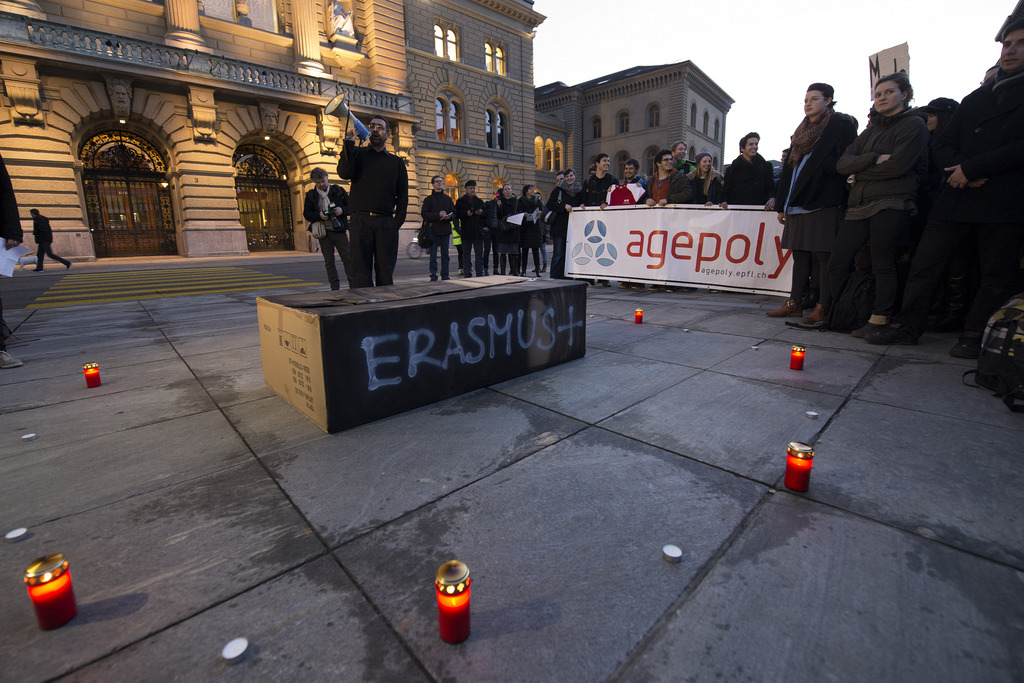
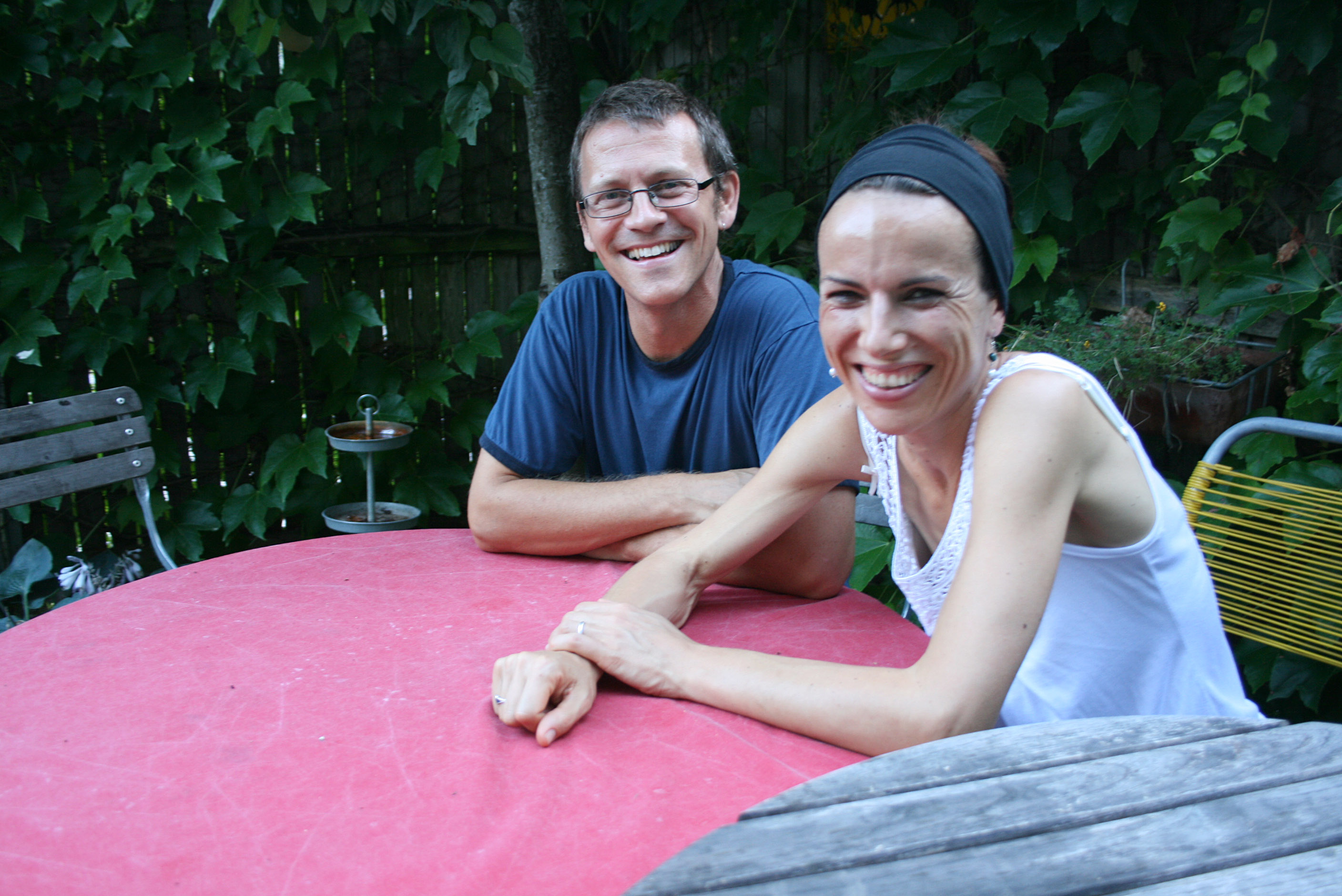
You can find an overview of ongoing debates with our journalists here . Please join us!
If you want to start a conversation about a topic raised in this article or want to report factual errors, email us at english@swissinfo.ch.